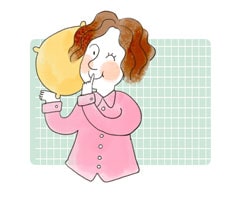
7 tips on how to fall asleep fast | Dodow
Check out these 7 tips to sleep well, whether you want to better your eating habits or do breathing exercises or meditation.
Lire la suiteInspired by yoga, hypnotherapy and meditation, developing Dodow immersed us into a deep study of alternative methods for fixing health problems; sleeping was just a first step.
We would like to share with you our studies, and help you discover health and well-being advice, that are easy to put into practice.
Yesterday evening, you told yourself that you had decided to wake up the next day at 9 am - but you didn't ask yourself how to fall asleep fast.
In an extraordinary twist of fate, you do indeed wake up at 9 the next day. At first you believe you are just lucky. But when it happens two, three, four times – you start wondering.
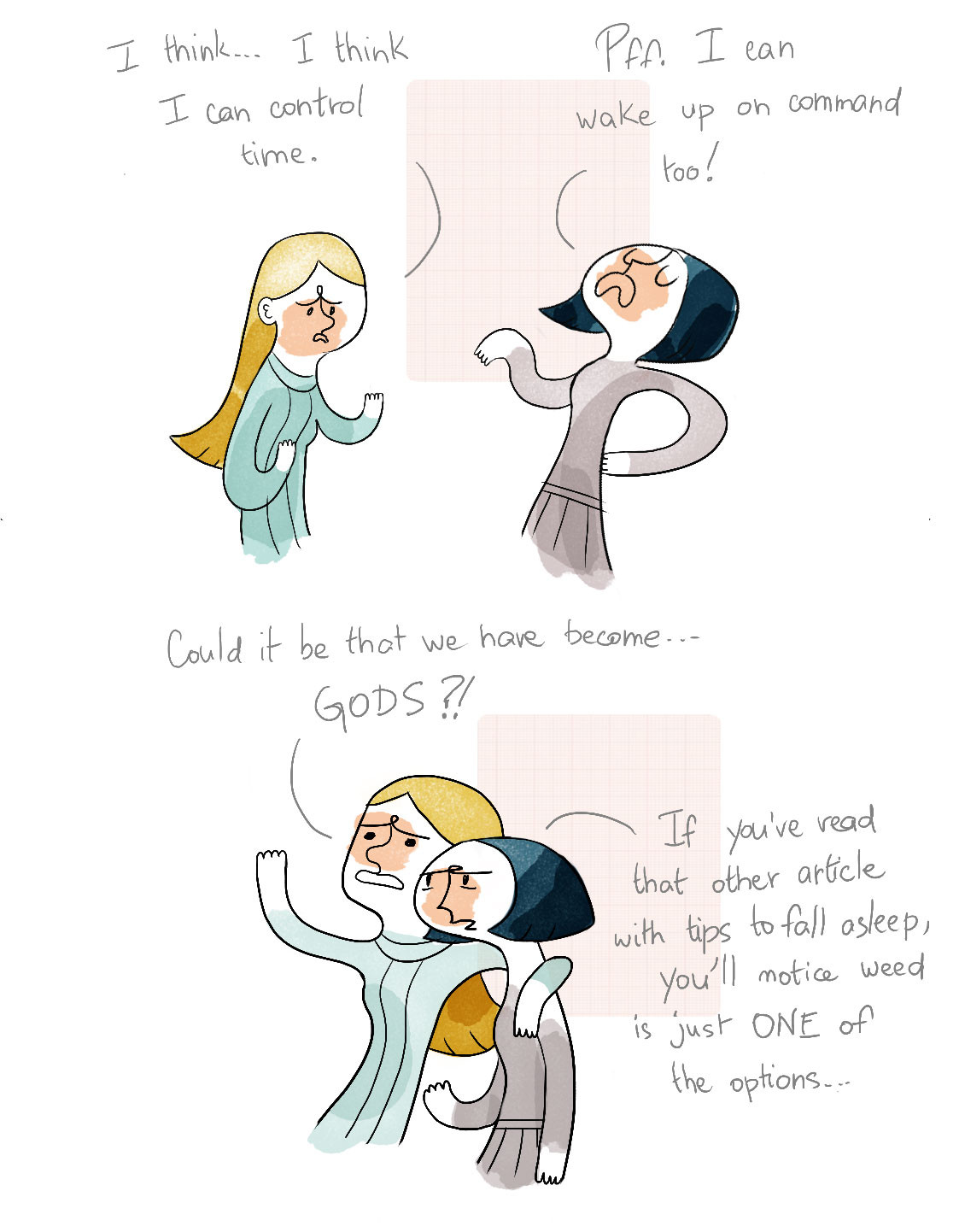
In your brain, your central nervous system has a part called the hypothalamus. It contains something called the suprachiasmatic nucleus. The suprachiasmatic nucleus controls the biological rhythm of your body. Like any old human being, these rhythms are built around a 24h time window.
This nucleus is linked to your optic nerve. Thanks to the photo-receptors in your retina that perceive light, the optic nerve tells the epiphysis, a gland that secretes melanin, whether it’s night or day.
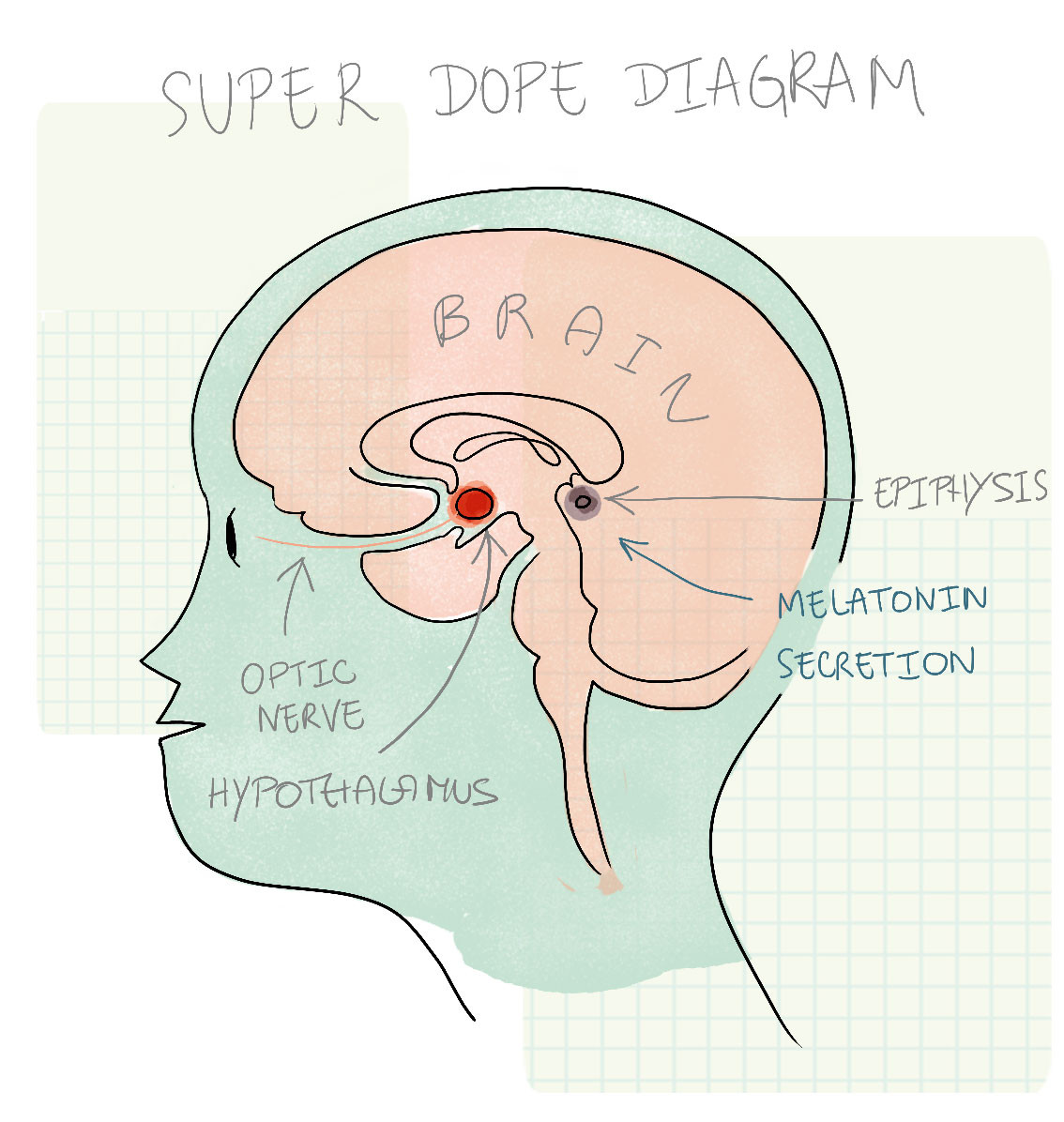
If it’s dark, the epiphysis produces a lot of melanin. This sleep hormone makes you want to sleep.
If there’s light, the epiphysis stops producing melanin so you don’t come crashing down on your desk.
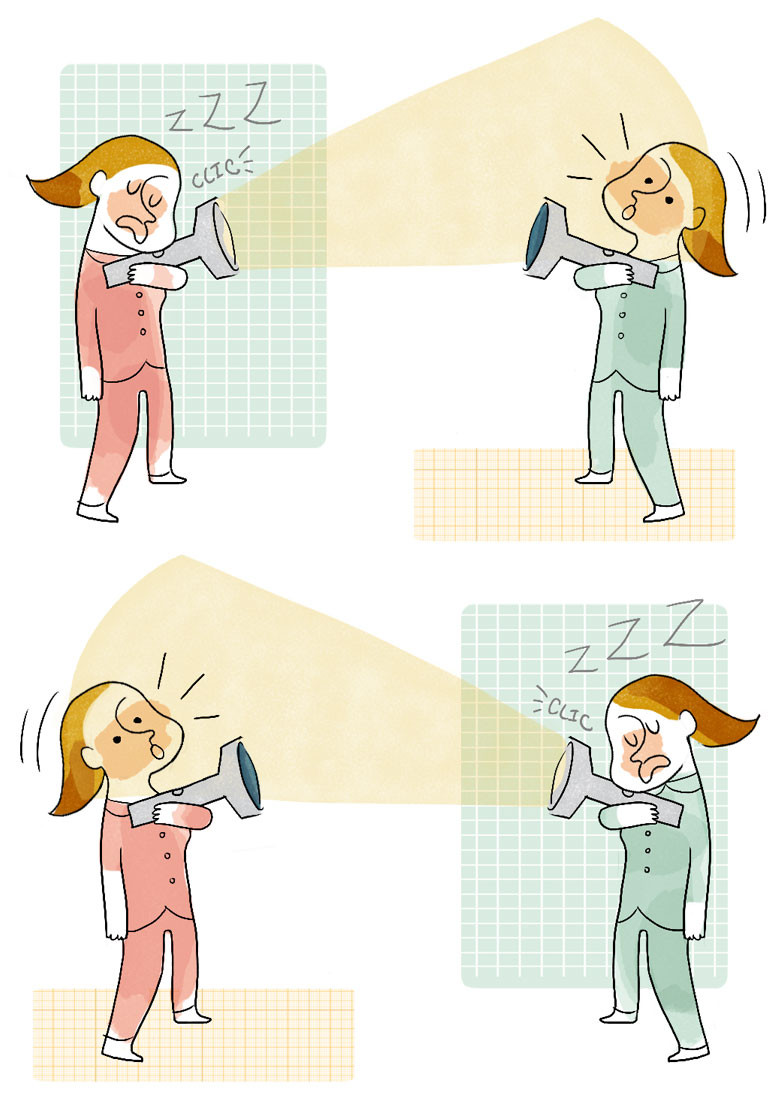
Unfortunately, your biological clock can be fooled! Nothing is worse than LED back-lighting to take your biological clock for a ride. If you spend time in front of a screen less than 30 minutes before going to bed, your suprachiasmatic nucleus (which is very confused) thinks it’s still daytime and tells the epiphysis to stop all melanin production.
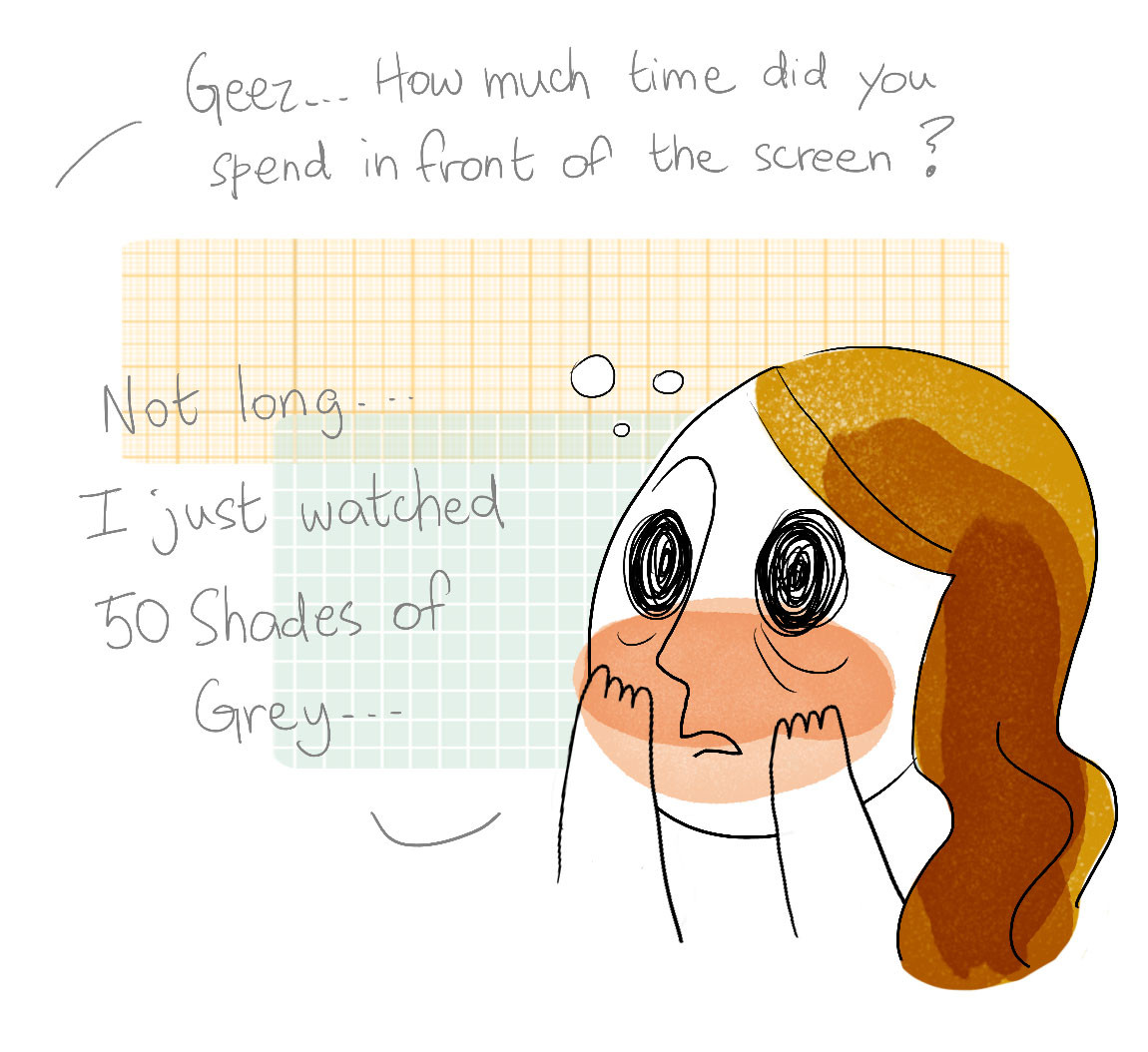
Freaky, right? Even though the best thing to do is just to stop hypnotizing yourself in front of your screen, there’s still an alternative for the biggest screen addicts among us.
F.lux is alittle application that automatically changes your screen’s tint depending on the natural light of your surroundings. By ascertaining your location via satellite and combining it with the time of day, F.lux determines the amount of daylight in your environment and adjusts the color of your screen to minimize your epiphysis’ confusion.
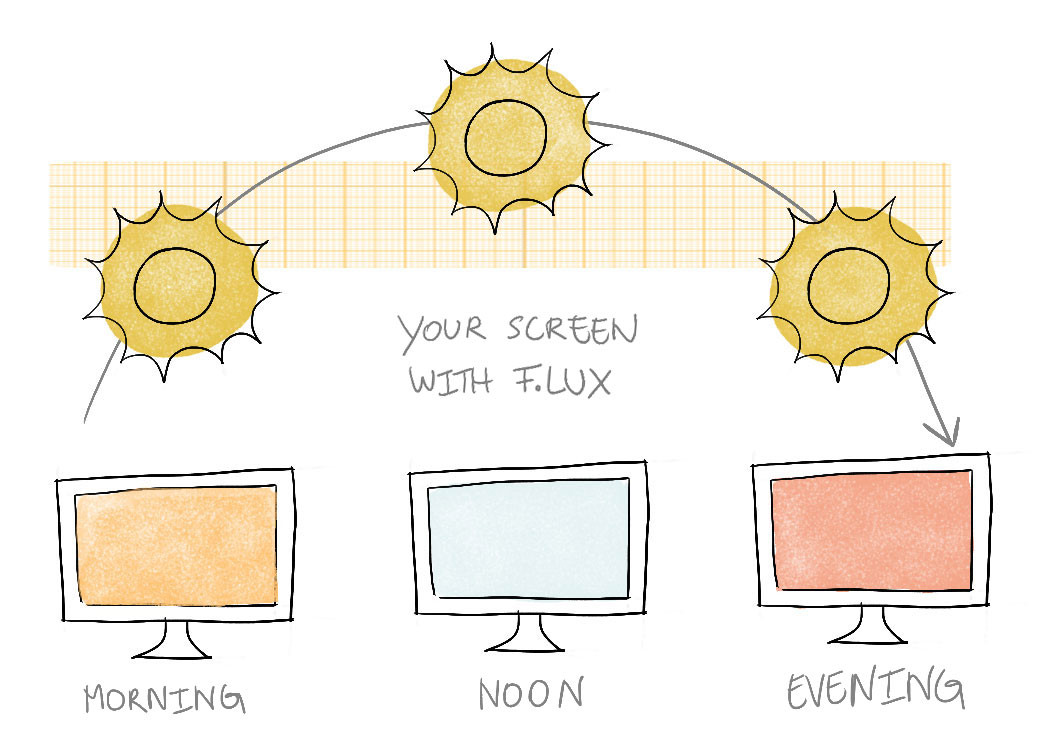
Wait a second, though. Doesn’t Dodow use blue light too? The very same light we’ve just explained will ruin your sleep in every conceivable way? Fear not! The light intensity reflected by Dodow on your ceiling is of only 1 lux – that’s waaaay weaker than a computer screen, that can go from 160 to 640 lux. And let’s not forget the exposure time is relatively short as well (8 to 20 minutes). Dodow will in no way upset your melanin production.
You can rest easy tonight !

On the same topic:
Fall asleep by changing your diet!
Stay upbeat all day to keep your mind open to sleep
Working yourself into a sweat is a great way to feel sleepy!
Having sex will help you feel tired enough for a good night's sleep!